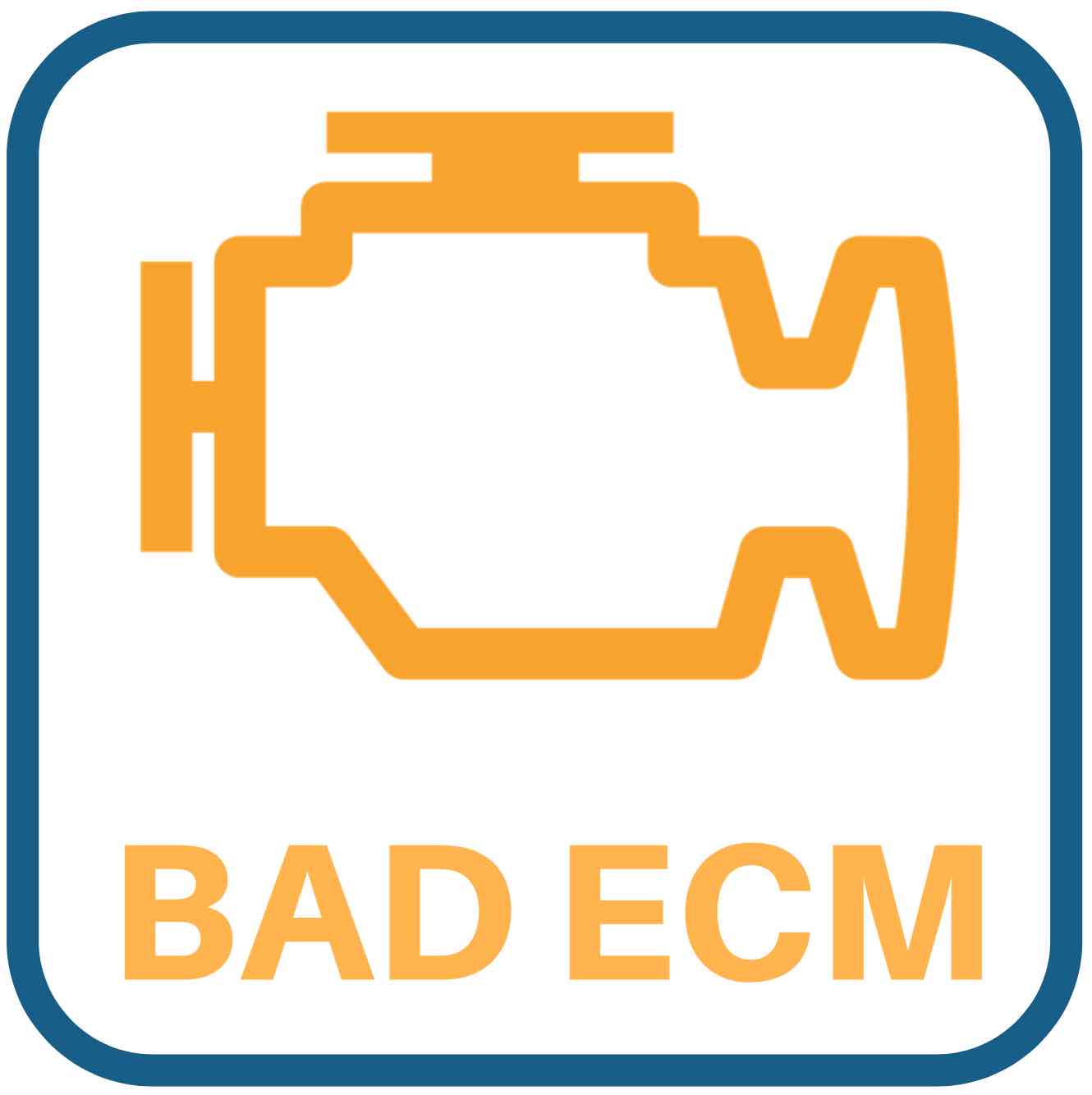The ECM (Engine Control Module) is the brain of any vehicle. It is sometimes referred to as the ECU or PCM. It’s all the same thing. The ECM controls and directs your entire drivetrain (unless there is a separate transmission controller). Without it, a car or truck is just a 3000 pound paper weight. When an ECM starts to go bad, it can cause all sorts of problems.
What an ECM Does
The ECM is the main computer in your vehicle. Almost all of the essential functions of your car or truck are controlled by the ECU/ECM.
The ECM takes all of the data from the various sensors in the vehicle, and uses it to run the engine in a way that is so efficient that it couldn’t be achieved with traditional fuel and timing control. It uses the data from the oxygen sensors, camshaft sensor(s), mass airflow sensor, knock sensors, and much much more to make constant adjustments to the engine. It’s so vital to the operation of a newer vehicle that it can’t run without one.
Other than the many performance advantages of an ECM over mechanically controlled engines, it also provides data that can help you diagnose what is wrong with the engine when there is a problem. While modern engines are more complicated than older engines, this data more than evens out the advantage of the older engine.
One of the problems with diagnosing the ECM, is that you depend on the ECM to provide you with all the diagnostic data that you need to repair the engine, or engine sensors. When the ECM it self goes bad it can be extra challenging to determine that it is at fault.
Bad ECM Symptoms
Due to the immense power that the ECM has over an engine, there can be a lot of different symptoms when one goes bad. While we’ve listed some of the most common symptoms of a bad ECM below, it’s not the primary cause for any of these. Make sure that you’re checking for trouble codes and doing what you can to make sure it’s not any of the more common causes of these problems before you suspect the ECM. Here are some of the most common things that happen when the ECM is bad.
Failed Self Diagnostic Cycle
When you start the vehicle, the ECM will do a self diagnostic cycle. If it fails the cycle, you’ll get a check engine light. This trouble code will tell you what part of the diagnostic that it failed, and you’ll have a pretty good idea of the appropriate action to take to fix it. Now, the check engine light can turn on for a lot of reasons. Almost none of them have to do with the ECM.
Running Rough
An engine with a bad ECM will often run rough and misfire. The misfire can come or go depending on what is going on with the ECM. It may stall, and not be able to start again, until you turn the ignition all the way off and back on again.
Poor Performance
As mentioned above, the ECM controls the engine timing, and air/fuel ratio. So, when it goes bad, it can knock the air fuel ratio off. This could lead to poor fuel economy, the previously mentioned running rough, backfiring, a flashing check engine light, and an engine that has no giddy-up and go.
Failure to Start
If the engine is failing to start entirely that can be a symptom of a bad ECM. There are certainly many things that could cause an engine not to start though. A bad fuel pump, ignition problems, clogged fuel filter, bad mass airflow sensor, and bad crank/camshaft sensors are just a few of the problems that can cause an engine that start.
Poor Shifts
The transmission may have a hard time shifting, or not even be able to shift at all.
Conclusion: Bad ECM/PCM Symptoms
The ECM is the most of vital piece of hardware in your car or truck. Without it, you’re dead in the water. If you suspect they are ECM is bad, you may wish to have a mechanic take a look at it. Thank you for taking the time to read this article, good luck diagnosing why your ECM may not be working. If there’s anything you like to add please leave a comment below. Have a great day!


